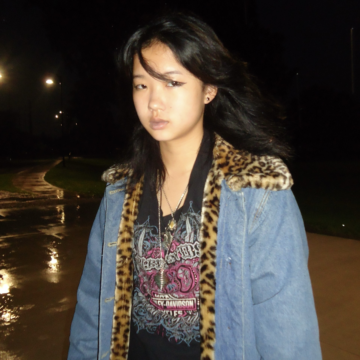
By Ellie L., ’27
Entropy is the property that provides the basis for the second law of thermodynamics, which states that the universe naturally gravitates toward disorder. Its explanation comes from the idea that the universe prefers to conserve energy; because energy must be put into organization, everything around us is constantly descending into an increasingly complex state of chaos. Cheerful, I know. While it may seem like a concept worth forgetting – especially with its conviction about an imminent “universal heat death” – entropy has taught me far more outside of the classroom than in it.
I, unlike the universe, have never been a very big fan of disorder. Admittedly, I worship the planner in my backpack, hate it when I have more than three unread emails, and am the designated pantry organizer of my household. I arrive dependably at school every morning half an hour early and have mastered the art of Marie Kondo’s file folding for each of my closet drawers. I have fallen in love with the idea of becoming a surgeon to dedicate my career to putting back together what has been broken –ordering the disorderly– and every organizational habit I have developed has been a microcosm of that passion.
However, life is often more unpredictable than might allow a color-coded spreadsheet to double as a crystal ball. When I am faced with a group discussion in which conflicting ideas create more questions than answers, or when I am rushing from track practice to a robotics meeting, worried about when to fit my homework in, I remind myself of the importance of entropy.
For a system to be considered at equilibrium, entropy must actually be at its maximum. In order to be stable, everything must be marginally out of control. This applies just as much to life as it does to chemistry. The best stories I’ve written didn’t start with an outline, but with random phrases I’d jotted down in a notebook in a moment of epiphany. My favorite chemistry labs were exponentially disastrous as they progressed, teaching me more about error analysis than acids and bases. My most memorable class periods were the ones that started with a lesson plan but followed the curiosity of the class, taking us anywhere from the taxonomy of mermaids to hiking horror stories.
Entropy is also a measure of the changes in the status quo of a system. The more unpredictable the outcome of a reaction, the higher its entropy value. Although I love my orderly desktop and preprepared Spotify playlists for any mood, I embrace copious entropy and all that it represents, because I, too, want to be the unexpected in a world that expects the status quo. I want to defy predictions and make world-changing discoveries, increasing my entropy as my impact tends limitlessly towards infinity. Though I don’t expect it to be easy and may occasionally enlist the help of my planner and about a million colored pens, I take comfort in knowing that my intention to excel as a woman in STEM and a young adult dystopian novelist pleases the universe.
A high entropy value increases the chance for both failure and success; it is both the natural way of the world and the primary supplier of chaos. I welcome both with open arms, though chaos and failure still scare me. Now, when I am the only one in my class with a particular opinion on our book or am stressed about the caveats of a busy schedule, I take a deep breath and recognize the potential to thrive in it. I am supposed to exist in chaos. I can venture into uncharted territory and comfortably embrace the positive that lies in the unknown, sure that when that entropic feeling inexorably takes over and life gets messy, I’ll be ready. To feel out of control is not the end of the world, but the natural state of it.
Admissions Committee Comments
Ellie’s essay skillfully uses the topic of entropy as an extended metaphor. Through it, we see reflections about who they are and who they aspire to be. Many students write about a future they hope to achieve, such as a major, career, impact, or lifestyle. While that may tell us something about who they are, these types of essays often use that desired outcome as the thesis and not as a means for us to understand who the applicant truly is. Ellie’s essay tells us some of those desired outcomes without sacrificing self-reflection in the process. We learn a lot about who they are throughout this metaphor: their willingness to learn from mistakes, accept the unpredictable, and push the status quo. These are traits that drive Ellie and ultimately allow us to know them on a deeper level and see how strong of a match they are for the Hopkins community.
Ellie L.“I feel really passionate that personality in the essays is significantly more important than professionalism. My favorite compliment that I got on this essay was they could hear my voice as they read it, which was proof to me that it was personal on more levels than one. My advice would be to stay as true to yourself as possible when writing—authenticity is admirable!”





